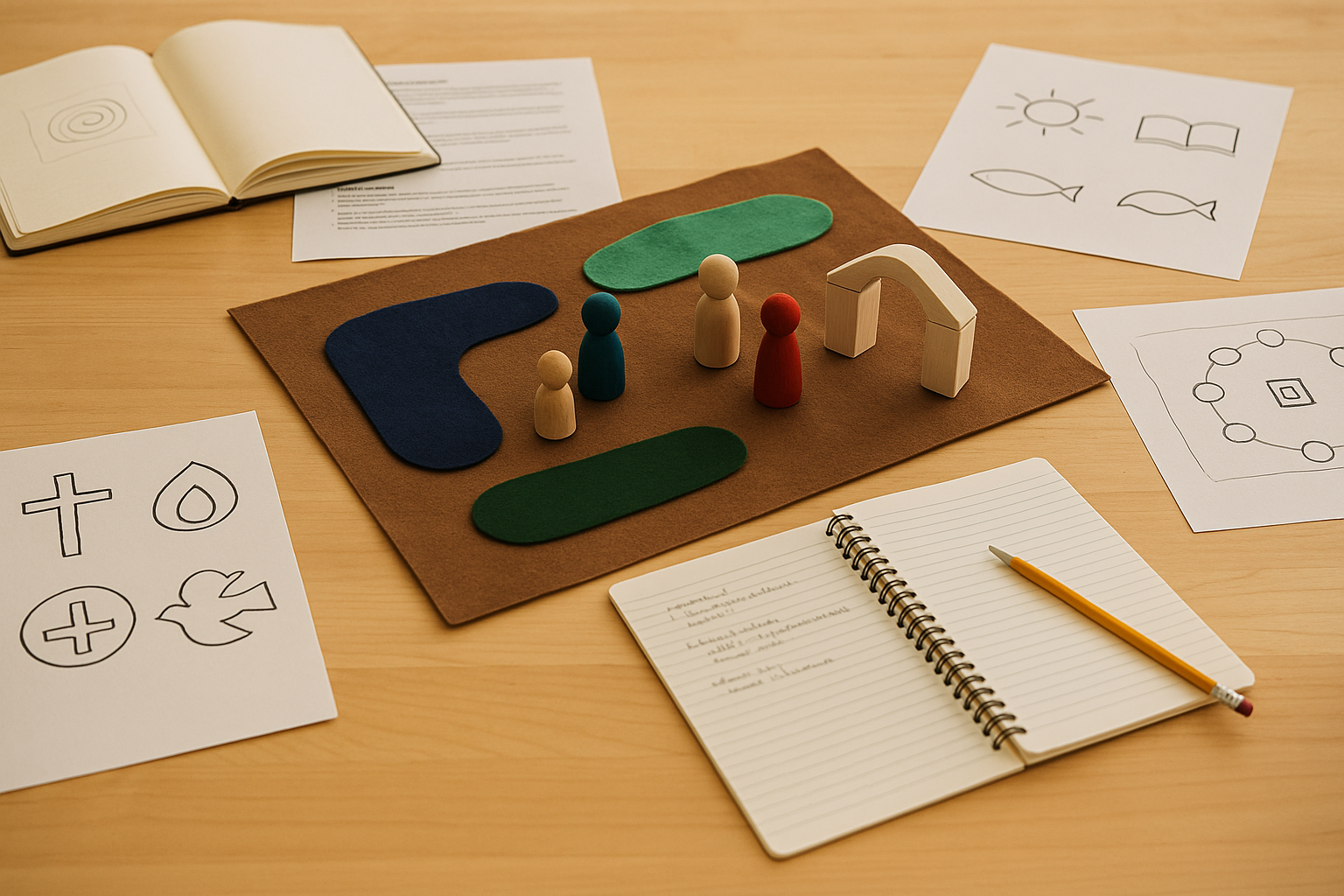The Living Stories Lab
The Living Stories Lab is a space of hopeful experimentation—a place to imagine what participatory, constructivist faith formation could become when churches are equipped with practices that invite people of all ages into shared discovery. The Lab is not yet a formal entity; it is a vision taking shape, growing naturally out of the creativity, research, and communal experiences that already animate Living Stories Sermons.
The hope for the Lab is to widen the circle, so that the beauty and the fruitfulness of the Living Stories method can spill over beyond just sermons. Living Stories began with preaching, but the underlying commitments—communal interpretation, creative engagement, and intergenerational participation—have the potential to support many different kinds of formation. The Lab is meant to be the home for that future growth: a place where new ideas can be developed, piloted in the congregational life of St. Gregory’s of Nyssa Episcopal Church, and made available to other congregations in ways that are simple, adaptable, and grounded in real practice.
One early sign of what the Lab could become is Theses & Thrones, a theological strategy game designed to help youth and intergenerational groups explore the English Reformation through roleplay, debate, and collaborative learning. It represents the kind of constructivist, story-centered formation that the Lab hopes to foster more broadly. You can read about Theses & Thrones already.
Over time, the vision is that the Living Stories Lab will gather projects like this—projects that invite churches into deeper, more communal engagement with Scripture, history, and the life of faith. Each offering would grow from ongoing experimentation at St. Gregory of Nyssa Episcopal Church, shaped by feedback from participants and refined through research partnerships. The goal is not to create polished programs, but to support churches in discovering formation that is creative, relational, and within reach.
The Living Stories Lab points toward a future where congregations have access to practices that spark curiosity, cultivate theological imagination, and strengthen intergenerational community. It is, for now, a hope—but one rooted in real experience and real possibility.

